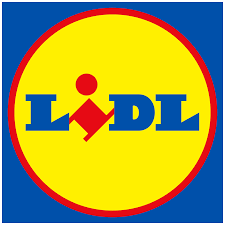UK inflation is currently rather high, higher than it has been in a couple of generations in fact. It depends upon whether we use the CPI, RPI, or possibly the food index, but levels – in order – of 10, 11 and near 15% are bandied about. This poses both a problem and an opportunity for the supermarkets. Of the major chains we can really only trade Sainsbury’s (LON: SBRY) and Tesco (LON: TSCO) for Morrisons is now owned by Clayton Dubilier as private equity. Waitrose is owned by John Lewis, an employee-owned company. Asda is now privately owned too. Aldi and Lidl are both privately, family owned. So, for us as investors our choices in the sector are SBRY and TSCO or nothing, really.

A Very Rough Guide To British Supermarket History
Back two decades the British supermarkets had the best margins in the world for the business line. 6% net on turnover wasn’t unheard of. The irruption of the Continentals – Aldi and Lidl – as discounters killed that position off and something closer to 2% is normal for the market nowadays. That collapse of margins has made the sector somewhere we probably didn’t want to be these past 20 years.


But, of course, things don’t stay the same for always. The thing that has now changed is that inflation.
Inflation Protection, Supermarkets and FMCG
A standard part of investing theory is that in inflationary times we want to be in companies that have pricing power. They will be able to maintain their margins as prices change. So, utilities – they’ve often got controlled prices, but those bureaucratic controllers include inflation uplifts. Or the other usual area, fast moving consumer goods. Not so much because those manufacturers and retailers really do have pricing power. Rather, because inflation is, to a great extent, a change in the prices of FMCGs. This clearly then works for supermarkets – if food and daily prices are going up, that’s inflation, but if food and daily prices are going up then prices in supermarkets must be.
So, in inflationary times we may well think that we can protect capital by being in supermarket stocks. Of which, recall, in the UK we can really only access two, Sainsbury’s and Tesco. This might make life more boring, but it definitely makes it easier. We’ve not got to worry about substitution from the higher end – Waitrose – to the discounters, as we can’t invest in either of them.


But Will Supermarkets Really Beat Inflation?
Theory can be grand, but it is necessary to check against reality. As The Times does here: “Sainsbury’s said pre-tax profits would be approaching the top end of its previous forecast of between £630 million and £690 million.” “Tesco reiterated its forecast for operating profits of between £2.4 billion and £2.5 billion, compared with a five-year average of £2.17 billion”. Of course, Ed Davey complains bitterly about this, but then that’s because it’s a day with a y in it.
If we properly consider those numbers, then what we’ve actually got is Tesco there upgrading its profits by 10 or 11%. And inflation is, as at the top, 10 or 11%. So, yes, Tesco is able to protect its profits in the face of inflation. Or, more accurately, real profits are remaining largely static, nominal profits are rising by the inflation rate. Which is rather what we’re looking for in a defensive stock, that it is able to maintain real earnings in the face of the storms of the surrounding economy.
Prices Don’t Reflect This Yet
It’s a little absurd to say that prices don’t reflect inflation yet but in the case of the supermarkets this does seem to be true. That standard investing theory tells us that we should expect the prices of utilities and FMCG companies to improve relative to growth companies as inflation and interest rates rise. We’ve not really seen this as yet in the UK market. Maybe we’re about to?
As with any and every investing theory there’s a possible contrarian view. Here that would be twofold. The first part being that the UK economy doesn’t, in fact, go into recession. The second that the inflation is this one single burst – the effects of war upon prices – and that it then fades away in the first half of this year. Both of those are possible, how possible will depend upon your own views.
Supermarkets Are Beating Inflation
What we really know so far is that the supermarkets are managing to beat inflation. We don’t know whether they will continue to do so – we don’t even know whether the inflation will continue. So the value of this observation is still variable.